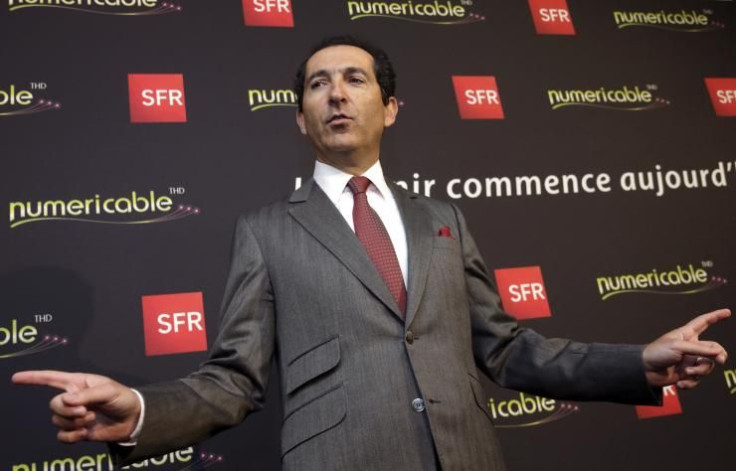Why Is Altice Buying Cablevision? Telecom And Cable Consolidation Taking Hold On Both Sides Of The Atlantic

Cablevision customers woke up to news of a European invasion Thursday, and many are no doubt scratching their heads. Altice, an Amsterdam-based telecommunications company that many American TV viewers have likely never heard of, said it will buy the troubled Cablevision Systems Corporation for $17.7 billion, including debt, in a deal that would make Altice the fourth-largest U.S. cable operator.
The deal, which is still subject to regulatory approval, marks a significant U.S. expansion for Altice, which owns cable and mobile operations across Europe and as far away as the Caribbean. The company is headed by the French-Israeli billionaire Patrick Drahi, who founded it as a small cable operator and has been aggressively acquiring companies over the past two years, as the Wall Street Journal reported. Drahi took the company public with a $1.8 billion IPO in January 2014.
The Cablevision deal would further Altice’s expansion into the U.S. following an announcement earlier this year that it is buying Suddenlink Communications in St. Louis. The cable and telecommunications industries are rapidly consolidating on both sides of the Atlantic, with pay-TV and mobile providers seeking to expand their footprints and entrench themselves deeper into consumers’ lives. For instance, just months after AT&T Inc. won approval for its acquisition of DirecTV, the company is already offering bundles that include DirecTV service.
As merger fever escalates in the U.S. and Europe, strategic couplings are only going to continue, according to Carl Hibbert, associate director of media and entertainment for Futuresource, a U.K. consulting firm. “Traditional operators will need to keep a close eye on telco’s rising interest in the TV space as operators’ make their mark in Western Europe and other key regions,” Hibbert said in an email Thursday.
He added, “The battle for multi-play service deployment has played a significant role in the rise in ‘telco TV’ as operators utilize TV service bundles to attract and retain broadband subscribers, in some instances offsetting the cost of TV against higher-margin broadband services.”
A Tale Of Two Titans -- And One Embattled Cable Company
Hibbert said the most significant development in the European telecom industry has been the neck-and-neck rise of Altice and Vodafone, a U.K.-based company. At the end of 2014, the two companies had a combined footprint in Europe of 14 million TV homes, in part created by aggressive acquisitions.
On the flip side is Cablevision, which has been on the sales block for the better part of a decade. Controlled by the Dolan family, the company, which operates largely in the affluent suburbs of New York City, has struggled to retain customers in some of the areas where it competes with Verizon’s FiOS service. Nevertheless, in a statement Thursday, Altice said Cablevision operates in the most attractive U.S. market, “characterized by affluence and population density.”
As part of the acquisition, Altice said it would pay Cablevision shareholders $34.90 per share, a number that surprised many analysts, including MoffettNathanson’s Craig Moffett, who estimated a stand-alone valuation of about $8 per share.
“We’ve been wrong before,” Moffett said in a research note Thursday,” but rarely this wrong.”
Christopher Zara covers media and culture. News tips? Email me. Follow me on Twitter @christopherzara
© Copyright IBTimes 2025. All rights reserved.






















